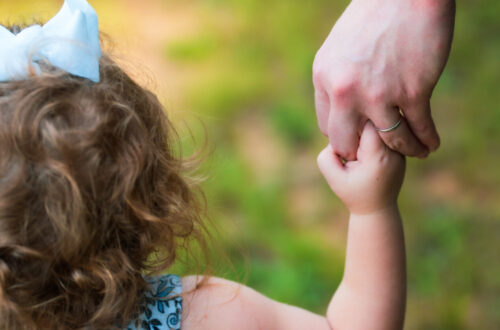
When You Feel Unworthy
When you feel unworthy
“I’m not good enough.” “Everyone is better than me.” “What’s the use in trying if I’m just going to fail?” At some point in our lives, hopefully we begin to see these highly self-critical thoughts for what they are. Perhaps they’re rooted in adverse childhood experiences, marked by trauma, abuse, or neglect. Maybe they stem from perfectionistic patters or endless comparisons, inflicted by others, or oneself. Maybe they derive from jealousy or resentment because others seem to have it “better” than us. Regardless of the source, these thoughts trigger us to feel like we don’t have what we need, or that we’ll never measure up. They cause us to feel unworthy.
When you feel unworthy, you don’t see yourself in the way you see others. You might appreciate and value the beauty in the people around you, without being able to stand back and acknowledge it within yourself. When you’re with a group of people, maybe you constantly compare and ruminate over your flaws in the presence of others’ successes. When you’re alone, perhaps you sink into a restless state of despair, allowing feelings of unworthiness to churn away at any hope for love, belonging, or connection.
If this is you, take heart. You’re not the only one struggling. For our society is ruled by ruthless standards, harsh judgments, and a chronic fear of failure. And in a culture saturated by scarcity, it’s not unusual to feel there’s something missing, or lacking within.
Scarcity: A Driving Force
We live in a society that constantly pushes for more: more money, more time, more energy, more sleep, more weight to loose, more food to eat, more color needed in our hair. We want a bigger screen, faster internet, a quicker check out line, and newer cars. This message that we need to do more in order to earn more so that we can be happier more is woven throughout our culture.
In Daring Greatly, Brené Brown states that worrying about scarcity, or what we have or don’t have, is our culture’s version of “posttraumatic stress” (1). Collectively, over the last two decades, our country has experienced 9/11, multiple wars, catastrophic natural disasters, mass shootings, and now a world-wide pandemic and its residual effects on our economy, relationships, and mental health. Brené writes that this version of “posttraumatic stress” happens when “we’ve been through too much, and rather than coming together to heal (which requires vulnerability), we’re angry and scared at each other’s throats” (p. 27).
Brené articulates three components of scarcity, which include shame, comparison, and disengagement, all of which saturate our social, economic, and political landscape. If we don’t start fighting back, we’ll continue to experience this default setting. We’ll continue to strive for more, and when we’re not satisfied with what we have, we’ll continue to drive ourselves mad thinking it’s got something to do with how bad, or flawed we are at our core.
So how do we fight back against this scarcity driven culture? When we feel unworthy, how do we cultivate a sense of worthiness when everything around us says we’re not good enough?
A Wholeheartedness Approach?
According to Brené, the opposite of scarcity is not a mindset of “abundance,” for that will still hold us captive to a place of of “more.” Rather, Brené states that the opposite of scarcity is something she terms, “wholeheartedness” which is fundamentally the ability to face uncertainty, exposure, and emotional risks while knowing that we are enough. To fight a scarcity infested culture, we’ve got to be willing to “own our vulnerabilities” and “engage with the world from a place of worthiness.” She later states, “If we’re willing to dare greatly and risk vulnerability with each other, worthiness has the power to set us free” (p. 101).
This is beautifully said, and I appreciate Brené’s emphasis on vulnerability as an antidote to shame. When reading her work, I can’t help but smile and want to showcase my own quirky imperfections to the world in the name of wholehearted worthiness. But something lingers in the back of mind, for I come to also think, “where in the world do we find this type worthiness?”
It surely can’t come primarily from our ourselves or own efforts; for we are often the very ones standing in the way of experiencing these places of worthiness. If our own inner critics are the ones nagging us in our insecurities and self-doubt, how can this same mindset be responsible for generating a sense of worthiness from within?
Society’s emphasis on the self
The Western world is attempting to live out this postmodern ideal which worships one’s “authentic self,” and seeks ultimate meaning and fulfillment by looking within. We are told that by finding and expressing our truest self, unhindered by tradition, authority, or religion, we can experience genuine freedom, purpose, and worthiness.
Yet how is this working out for us millennials and Gen-Zers? Turns out, younger generations are more stressed out than ever. From social media addiction, gun violence, immigration issues, sexual harassment, and endless amounts of debt, we’re faced with ongoing triggers and cultural tension. In response, we’re hurting, and we’re longing for something more. It’s no wonder we’re plagued by scarcity and not having “enough.”
Yet we’re told, in these places of tension and confusion, to find answers to our complex needs inside ourselves. We’re encouraged to do what feels right, even though what feels right could be generating the very outcomes we need to avoid. It feels right to distract from worries or cares by scrolling through facebook or tictoc for much of the day. It feels right to follow one’s passions and attractions to whomever might entertain or satisfy them for a night. It feels right to follow our hearts; yet often, our hearts are stubbornly ignorant to the realities of this broken world.
In reality, true meaning and fulfillment comes from looking beyond ourselves and our limited frame of reference. If we’re trying to cultivate a healthy sense of self, or develop a degree of worthiness by our own efforts or through the strategies of society, we’re going to keep running into dead ends.
The ’empty self’
In Well & Good, Richard Eckersley, a social researcher, references American psychologist Philip Cushman in stating that our current era has created ‘the empty self,’ “stripped of community, tradition and shared meaning” (p. 5). It has constructed a self that is, “a disappointment to itself, and must be soothed and made cohesive by being constantly ‘filled up’ with consumer products, celebrity news and the quest for self-improvement and personal growth” (p. 6).
Eckersley also references Martin Seligman, another American psychologist, who explains that one necessary condition for meaning is the “attachment to something larger than the self, and the larger that entity, the more meaning people can derive… The self, to put it another way, is a very poor site for meaning” (p. 6). Eckersley goes on to state:
“Despite the cultural propaganda of our times, it is clear that constantly filling up an empty self is a poor substitute for the web of meaning provided by deep and enduring personal, social and spiritual attachments. We are told that a highly individualistic, consumer lifestyle is compatible with strong families, social cohesion and equity, environmental sustainability and a sense of spiritual connectedness to the universe in which we live. It is not.”
In reflecting back on Brené’s work regarding shame, vulnerability, and resilience, I’d agree that a key strategy in fighting against this insecure, scarcity driven culture, is to approach it from a place of worthy “wholeheartedness.” And I propose, that rather than attempting to cultivate this sense of love, acceptance, and belonging primarily from within ourselves, we instead need to embrace and accept it from it’s truest, purest source.
A Place of Worthiness, In Christ.
When Christ walked on this earth, He spoke often of the Father’s love, and told us that we could share in this same love. He demonstrated compassion to the brokenhearted, and gave the weary a reason to sing, and hope.
As indicated throughout the scriptures, we are granted a new identity through something, someone, much bigger than us. In Christ, we are adopted into God’s family (Ephesians 1:5), justified freely by His grace (Romans 3:24), rescued from the kingdom of darkness (Colossians 1:13), and given an inheritance that can never perish, spoil, or fade (1 Peter 1:4). We learn that we are greatly loved (Romans 1:7; Ephesians 2:4), chosen before the foundation of the world (Ephesians 1:4), and bought with a price (1 Corinthians 6:20).
Here, in the presence of the One who willingly suffered and died on our behalf, we can experience a sense of worthiness that goes so far beyond what our own minds and hearts might construct. We experience true freedom, unrestricted by the limits of our own self-doubt or fear of failure. This sense of worthiness is not based on how we see ourselves, or on our own ability to find, accept, or live out who we think we are supposed to be. Instead, it is granted to us on the basis of what our Father already knows we need, and who we already are.

References:
- Brown, Brené. Daring Greatly: How the Courage to Be Vulnerable Transforms the Way We Live, Love, Parent, and Lead. New York: Gotham Books, 2012.
- Richard Eckersley. Well & Good: Morality, Meaning and Happiness (2nd Edition). Text Publishing, Melbourne, 2005. (first published 2004).





2 Comments
Bukola Ojo
Great read
Elizabeth
Bukola Ojo, Thank you so much for taking the time to read and comment. I appreciate that!